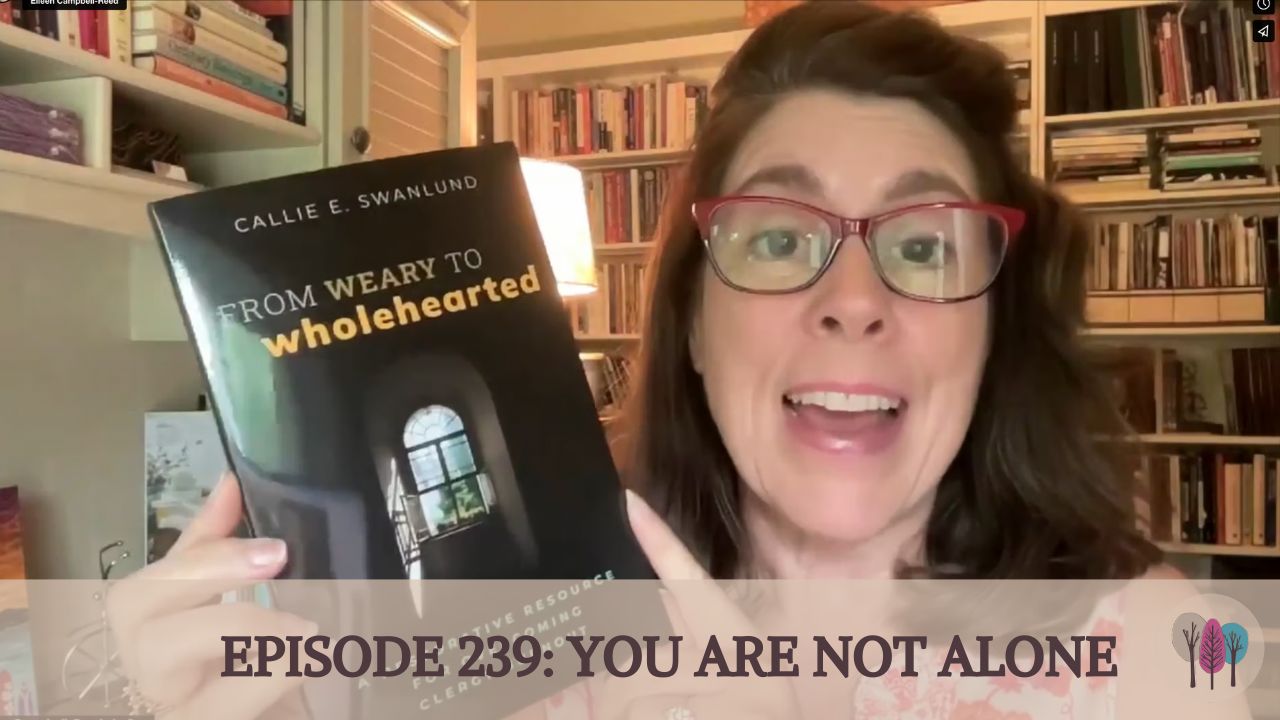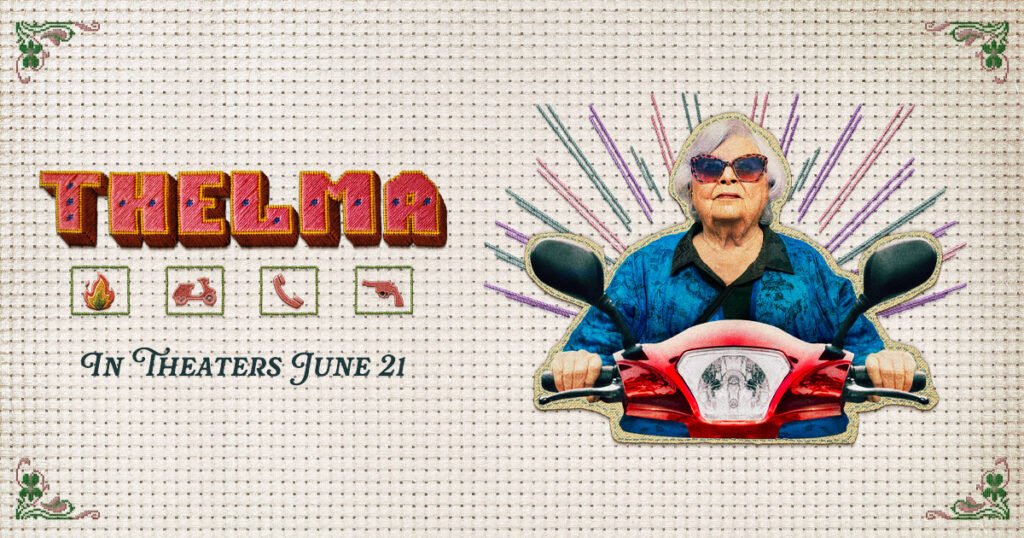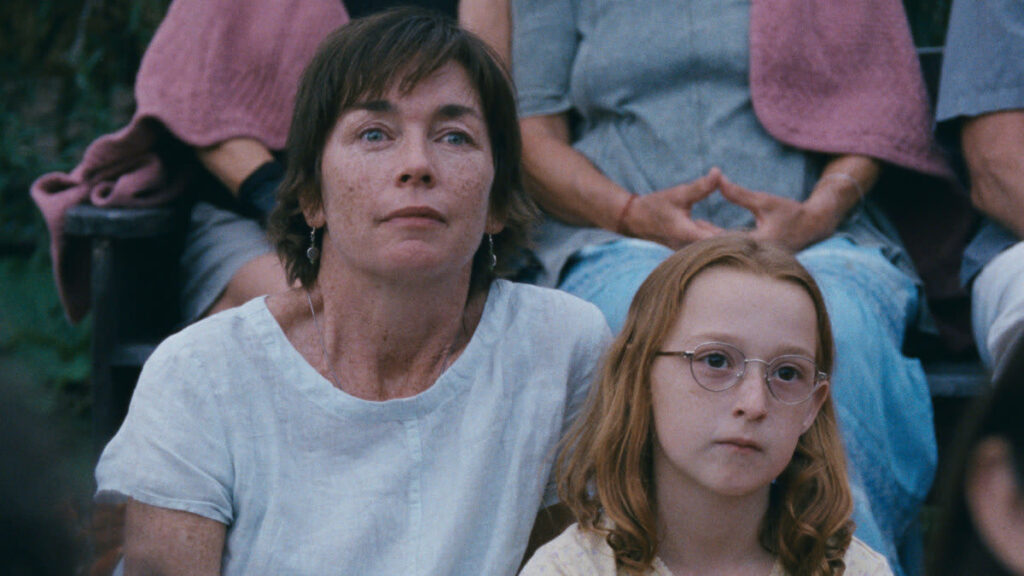Callie Swanlund‘s new book is part of a beautiful and growing effort by writers addressing ministers and church leaders, reminding us, you are not alone! From Weary to Wholehearted is Callie’s love letter to remind you and me of many things, including, we are not alone. We need a lot of reminding these days.
I’ve been on the road a lot of the spring and summer. And it feels good to come home. Part of the fun is coming home to mail and packages. In this five-minute episode of Three Minute Ministry Mentor (3MMM), I open one of those packages, and I read from Callie’s new book!
On being alone
Although we live among the largest ever planetary population, so many factors make us feel alone right now. Technology for all its connectivity also leaves us alone with our devices. I typically go to the gym alone. Many of you work at home alone. We can even go to church alone these days. As I’ve been saying, hybrid worship is here to stay. Digital connections help in many ways to break down barriers of isolation. But they are not the embodied relational presence of another person, they don’t allow us to feel singing in four part harmony or share a friendly hug.
Many kinds of communication, however, through whatever means – televisions, movies, books, YouTube videos, social media stories, and yes sermons and blogs – give us a sense of not being alone because they tell stories that help us feel seen and connected.
Not Alone: Books
In her acknowledgments which she calls simply, “Gratitudes” (and I love that!), Callie Swanlund thanks her companions at the Writing Table or helping her know she was not alone. She also thanked me as her coach which brings me joy! We had various meetings apart from the daily work of the Writing Table, and although we’ve still never met in person, there’s very much about my friendship with Callie that feels immediate and supportive and very real. (Learn more about Callie’s experience at the Writing Table.)
I wondered aloud recently to friends at the Writing Table, about why physical books, printed on paper, feel more comforting. Don’t get me wrong. I love the story I get lost in while reading on my phone at night before bed. The stories I read in any format are no less real. Yet somehow holding a book is comforting. Underlining important passages. Drawing stars or writing notes in the margins feels more personal. This is not a new thought, but the idea hit me hard again. Physical books feel more comforting because they are trees. They grew from the earth. Books are still rooted in the earth through their genetic composition. And they deliver a kind of presence and comfort that my digital screen does not.
I feel less alone when I read any book — digital or print. Because the stories in the books I choose help me know another person or group. The best ones help me feel seen and understood because someone else had a similar experience, and they took time and energy to share it in a written story.
Not Alone: Movies
Movies also have a way of transporting us by immersing us in stories. This spring and summer as I looked for ways to find rest and enjoy my life, all the while knowing I had a relentless list of urgent tasks to be done, I still made time to go to the movies. I often went late at night. Sometimes with friends or family. Sometimes alone.
So today, I want to give you three recommendations before they leave the big screen. I hope I’m still in time because seeing them on the big screen is so much more powerful. The theater allows you to get lost in the story, to be drawn into the character’s lives and emotions, and to feel totally present to something and someone else instead of your own hamster wheel of responsibility. They help us feel less alone.
Ghostlight * * * *
(watch the trailer)
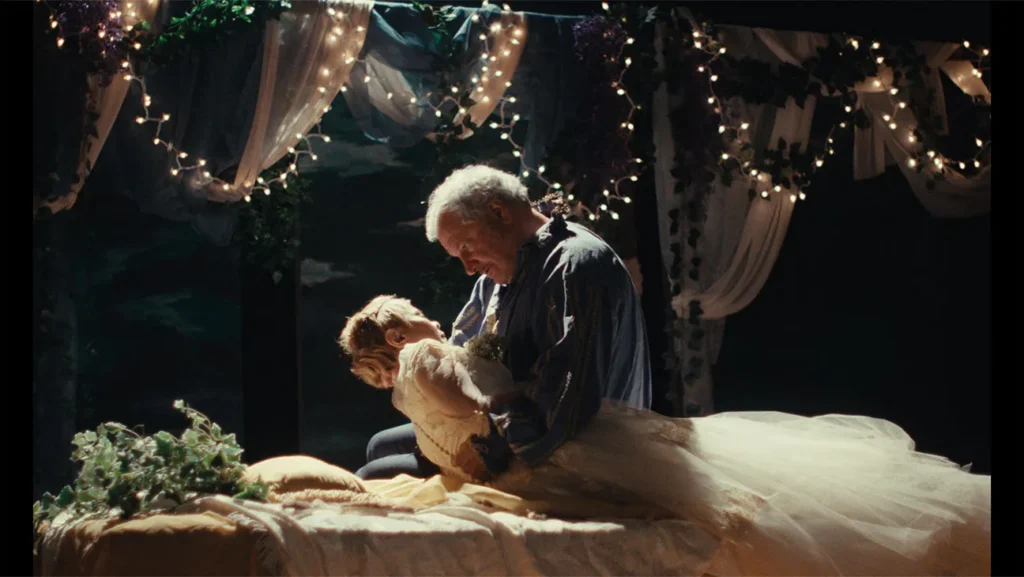 Intense with emotion and a feeling of actual life drama, the story of this movie unfolds gradually. You keep waiting for another shoe to drop and find out what was lost or broken. Mostly it is worth the wait. Moments of relational recognizability are frequent in this movie. The main characters are played by a real-life mom, dad, and daughter. And while I typically pay no attention to critics, Rotten Tomatoes gives this movie an unprecedented 100.
Intense with emotion and a feeling of actual life drama, the story of this movie unfolds gradually. You keep waiting for another shoe to drop and find out what was lost or broken. Mostly it is worth the wait. Moments of relational recognizability are frequent in this movie. The main characters are played by a real-life mom, dad, and daughter. And while I typically pay no attention to critics, Rotten Tomatoes gives this movie an unprecedented 100.
Thelma * * * *
(watch the trailer)
Although something more of a comedy, Thelma also has a core of grief in the storyline. She is after all 93, which means she has lived a lot and also lost a lot. Thelma still lives a delightful and highly recognizable life of an elder in the United States these days. She goes on a big adventure on a borrowed motorized scooter. And she finds friendship while facing one of the most widespread and growing problems in the United States economy: elder scams and abuse.
Inside Out 2 * * * * *
(watch the trailer)
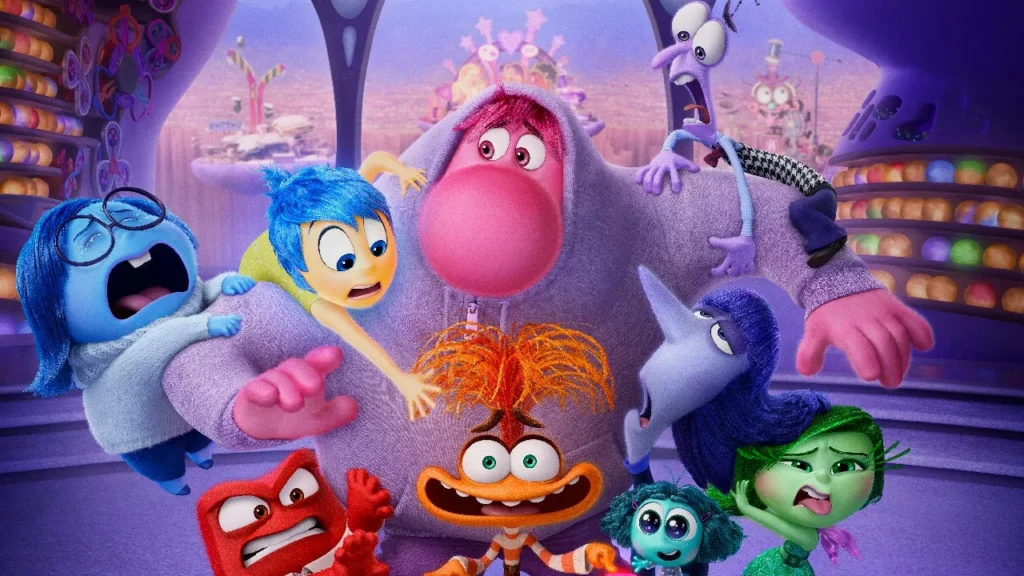
If you loved Inside Out the original as much as I did, then this will be a no-brainer. Get it? No brainer because it’s all about what happens inside now 13-year-old Riley’s mind. At the end of Inside Out the puberty button is installed. This summer’s movie is all about what happens when that alarm goes off. The capability of the creators to make such a fun and interesting and clever movie about one’s inside world and the remodeling of brains that happens for young people, deserves awards! It is especially onpoint for preteens, teens, and young adults who lived through four tumultuous years starting with the shut down of 2020 and leading to multiple pandemics. For them, Inside Out 2 offers a big moment of self recognition. From bottled up emotions to personality structures, to the escalation of anxiety, to the gifts and problems with sarcasm, the movie is simply a treat.
Janet Planet ***
(watch the trailer)
I’m giving honorable mention to Janet Planet. It does center experiences of 11-year-old Lacy. It is a story, according to Pulitzer Prize-winning playwright Annie Baker, who is making her debut as the movie’s director, about a girl’s “falling out of love with her mother.” There is plenty of love and grief in the movie. But it moves at a very slow pace and with uncertainty. It is quirky for sure and sometimes I laughed aloud in the sparsely populated theater. The overall effect for me was feeling less satisfied and unsure of the storyline. But perhaps that is more like the real experiences of actual 11-year-olds. What a novel thought.
Two Themes
All four of these summer movies hit on two extremely valuable themes, tapping into our national consciousness (maybe global consciousness) in the present season.
First, each movie centers on the stories and lives of young people. Although the pandemic is rarely if ever mentioned in any of the four movies, its impact on the mental health of developing preteens, teens, and young adults is a bright thread through much of the cinema this summer.
Second, each movie takes on a variety of losses, deaths, and griefs, which compound teen and young adult development. Each story foregrounds loss, doubt, and grief. The grief is by no means limited to the young. Parents and grandparents figure large in these stories. They give us a mirror for facing our own losses and experiencing our own grief in both helpful and unhelpful ways.
I hope you will take yourself to see one or more of these movies. Go to be entertained. Relax and put your feet up. Also go to get a fresh perspective on your own grief. And perhaps even new eyes to see and recognize experiences of preteens, teens, and young adults in your life. And if you are one of the people who is called to pastoral and spiritual care as your vocation, I hope these stories will help you think about creative ways to make space for grief in your community of faith.
Try the “Finding Our Way” Study Guide
We are all still finding our way and dealing with multiple changes to the world, to our lives, and to the church. Erin Robinson Hall wrote this study guide to help you lead important conversations as you navigate a new era of ministry. We need to acknowledge the changes, ask good questions, listen, make space for grief, and start to tell new future stories.
The “Finding Our Way” Study Guide can help you do all this and more.

